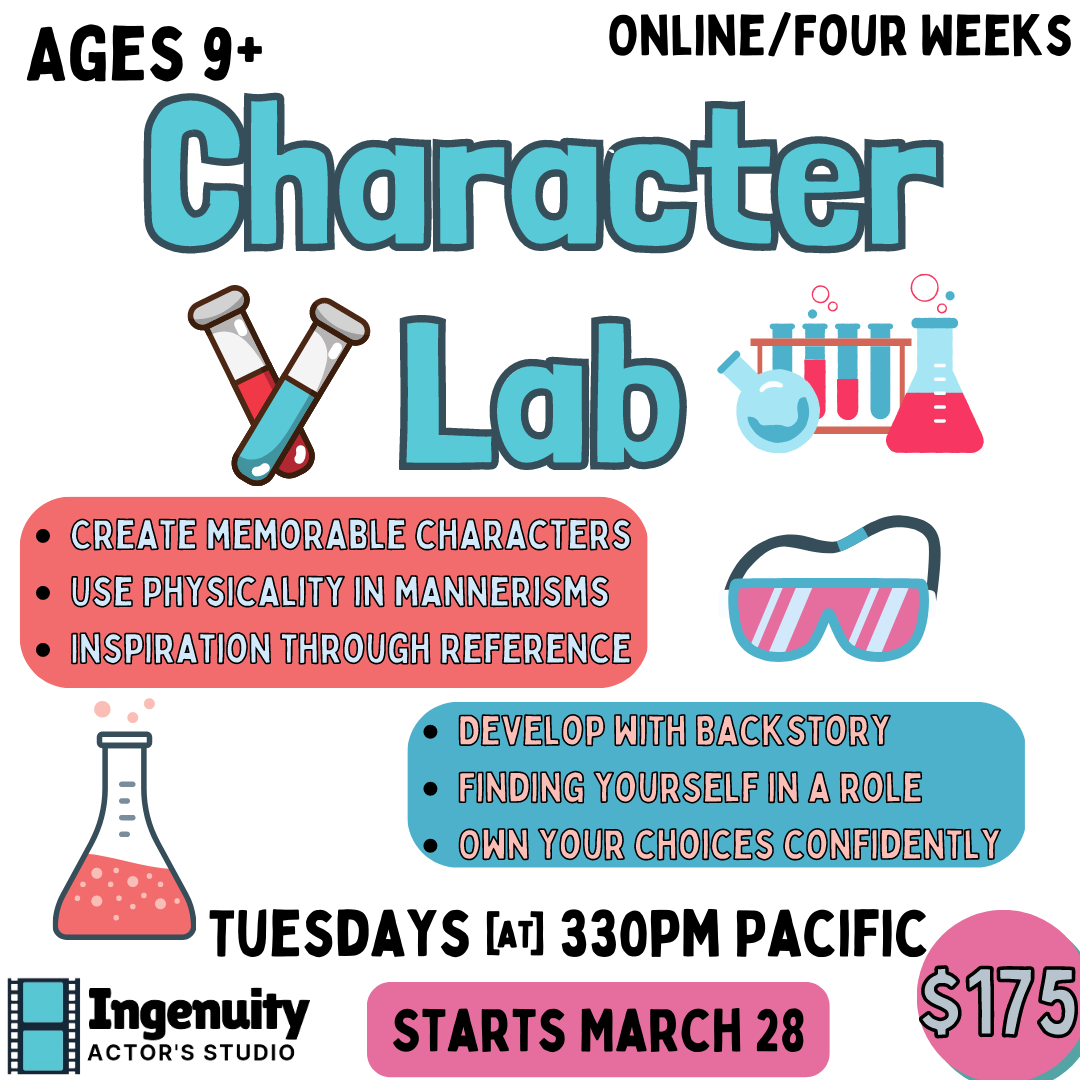The secret to a “Grounded” performance
A majority of actors pursue a career in television and film after already learning the acting ropes on the school or community theatre stage or theatre based acting class. One of the biggest hurdles these actors come across is learning the difference between theatre acting and on-camera acting. While the core principals of acting theory are the same - the delivery is different. Often actors, especially kids, struggle with feedback that is telling them that their acting is “too big” and that is needs to be “grounded” so it can be belivable on the screen.
To explain it in simple terms: Your performance changes depending on how you reach the audience.
While the basic acting principles are the same, the differences lie in the technical aspects and the size of the performance. In theater, actors need to project and be expressive to reach the back of the room, whereas in film, smaller, more authentic expressions are required as the camera is close up.
When actors perform on stage they have a duty to make sure that everyone can see, hear and understand them. Acting is often exaggerated to a point in order to reach each audience member and their proximity to the stage. Kids are taught in the theatre to use bigger emotions and bigger gestures and use bigger voices to accomplish this.
When an actor performs on-camera there is no audience to reach (with the exception of multi-camera sitcoms) and the tools we use to record a performance allow actors to behave as truthfully as they can in their given circumstances. The camera is close and the boom microphone is too.
In an article from My Actor Guide by Hunter Phoenix there is a good checklist on how to act realistically for the camera.
Here are some tips I am highlighting from his article that shed some insight on what it means to be GROUNDED.
Know your character: Understand your character's backstory, motivation, and objectives to create a genuine portrayal.
Be present: Focus on the current moment, reacting and responding to your scene partners as if everything is happening for the first time.
Listen and react: Truly listen to your scene partners and react spontaneously, as genuine conversations are unpredictable.
Don't force emotions: Avoid overacting by allowing emotions to flow naturally from your understanding of the character and scene.
Observe people: Study real people's behavior and mannerisms to incorporate authentic elements into your acting.
Learning to be GROUNDED when acting is a way to use behavior that realistically fits the given circumstances. This kind of performance allows truth to happen and the acting tends to disappear. Once you examine the situation your character is in - the actor can play with behaviors and reactions that make sense and look real.
I have two upcoming online youth classes that explain and cement these ideas.
We practice to show we get it and can do it.
GROUNDED
This is a four week online class that looks at our audition sides in a new way. Becoming more believable with realistic behavior. Learn to be invested into characters and what they want through reactions. Perfect for theatre kids who tend to go BIG. Valuable for all actors to refine and explore new choices that work. Young actors ages 8 to 15 are encouraged to take this class. Space is limited. It begins Monday, March 27th at 4pm pacific time using the Zoom platform. Affordably priced at $175.
CHARACTER LAB
A new four week class that teaches young actors how to create memorable characters in auditions that Casting Directors will notice. By encouraging young actors to understand how they are like their characters. By using the script and our imaginations to create a rich backstory for a character. By using references and inspiration from exisiting characters that can help shape the character we are creating. By seeking to stand out and make memorable choices the right way to impress casting. Young actors who are seeking to make bolder choices and increase callbacks should take this class if they are 9+. Space is limited. It begins Tuesday, March 28th at 330pm pacific time using the Zoom platform. Also affordably priced at $175.
Tuition can be split into two payments. If that would benefit your situation, please reach out to Corey for arrangements







